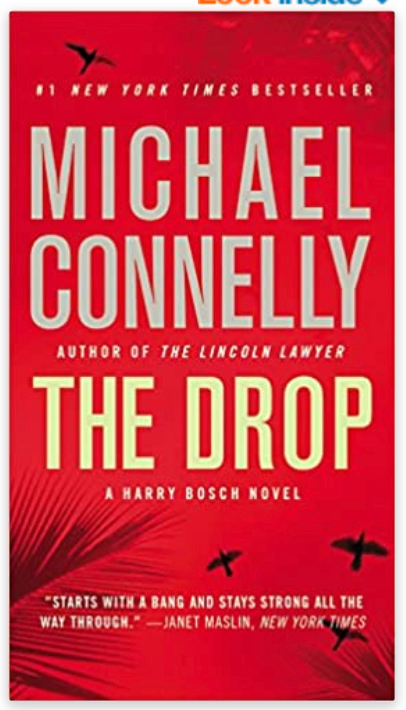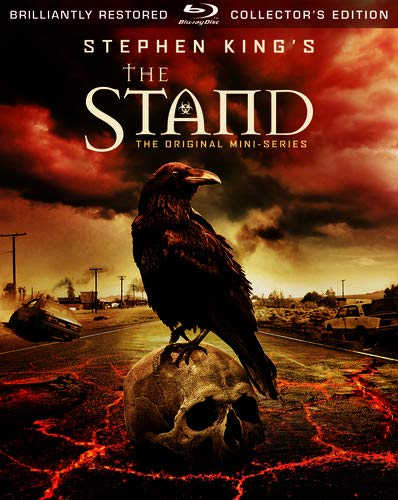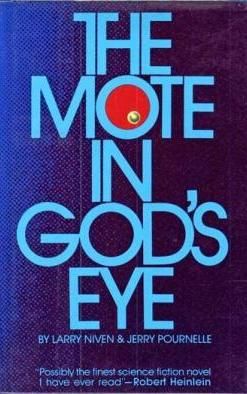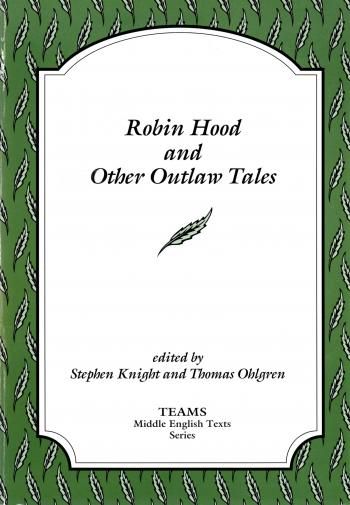What are you reading now?
-
Everyone says that "Neuromancer" is the seminal work of cyberpunk sci-fi. I tried to do it as an audiobook about 8 years ago and gave up.
Perhaps I should try again, but MOAR Bosch is so tempting, because popcorn is satisfying.
@George-K said in What are you reading now?:
Everyone says that "Neuromancer" is the seminal work of cyberpunk sci-fi. I tried to do it as an audiobook about 8 years ago and gave up.
Perhaps I should try again, but MOAR Bosch is so tempting, because popcorn is satisfying.
It's a great book. I find I have to read most of Gibson's stuff twice to figure out what the hell is going on. I did the same thing with Ep. 1 of The Expanse.
I'm a big fan of cyberpunk. Taking sci-fi in a different direction from Asimov, Heinlein and Clarke was a great thing to do.
-
@George-K said in What are you reading now?:
Everyone says that "Neuromancer" is the seminal work of cyberpunk sci-fi. I tried to do it as an audiobook about 8 years ago and gave up.
Perhaps I should try again, but MOAR Bosch is so tempting, because popcorn is satisfying.
It's a great book. I find I have to read most of Gibson's stuff twice to figure out what the hell is going on. I did the same thing with Ep. 1 of The Expanse.
I'm a big fan of cyberpunk. Taking sci-fi in a different direction from Asimov, Heinlein and Clarke was a great thing to do.
-
@George-K said in What are you reading now?:
@Doctor-Phibes said in What are you reading now?:
It's a great book.
Where to start? "Neuromancer?"
That's the first one in the trilogy.
For cyberpunk, I've actually found Neal Stephenson's books easier - Snowcrash is a great book.
I also enjoyed The Windup Girl, and The Waterknife, by Paolo Bacigalupi.
Obviously, Aqua's almost certainly read a lot more of this stuff than me, so he might have some suggestions...
-
@George-K said in What are you reading now?:
@Doctor-Phibes said in What are you reading now?:
It's a great book.
Where to start? "Neuromancer?"
That's the first one in the trilogy.
For cyberpunk, I've actually found Neal Stephenson's books easier - Snowcrash is a great book.
I also enjoyed The Windup Girl, and The Waterknife, by Paolo Bacigalupi.
Obviously, Aqua's almost certainly read a lot more of this stuff than me, so he might have some suggestions...
@Doctor-Phibes said in What are you reading now?:
@George-K said in What are you reading now?:
@Doctor-Phibes said in What are you reading now?:
It's a great book.
Where to start? "Neuromancer?"
That's the first one in the trilogy.
I'll give it another shot.
For cyberpunk, I've actually found Neal Stephenson's books easier - Snowcrash is a great book.
Vampires? Really? I tried.
I LOVED Seveneves, however. It didn't strike me as "punk," however.
I also enjoyed The Windup Girl, and The Waterknife, by Paolo Bacigalupi.
Yes. Windup Girl was fun (?) and it's on my "need to read again" list.
Obviously, Aqua's almost certainly read a lot more of this stuff than me, so he might have some suggestions...
Yeah, but he's more geeky than you and I put together.
-
@Doctor-Phibes said in What are you reading now?:
@George-K said in What are you reading now?:
@Doctor-Phibes said in What are you reading now?:
It's a great book.
Where to start? "Neuromancer?"
That's the first one in the trilogy.
I'll give it another shot.
For cyberpunk, I've actually found Neal Stephenson's books easier - Snowcrash is a great book.
Vampires? Really? I tried.
I LOVED Seveneves, however. It didn't strike me as "punk," however.
I also enjoyed The Windup Girl, and The Waterknife, by Paolo Bacigalupi.
Yes. Windup Girl was fun (?) and it's on my "need to read again" list.
Obviously, Aqua's almost certainly read a lot more of this stuff than me, so he might have some suggestions...
Yeah, but he's more geeky than you and I put together.
@George-K said in What are you reading now?:
Obviously, Aqua's almost certainly read a lot more of this stuff than me, so he might have some suggestions...
Philip K. Dick is like the O.G. of Cyberpunk. "Do Androids Dream of Electric Sheep" is of course the most well-known. Also a quick read.
Hardwired was good. Fun, Cyberpunk, 80s.
Infomocracy is kinda Gibsonesque, and fun to read for the ideas, but might be a little bland if you're looking for popcorn.
Altered Carbon's probably the most successful modern series in the genre, but Morgan's got another series that's pretty fun, too. Different premise, still cyberpunk. It starts with Thirteen. ("Black Man" in the U.K.)
Cyberpunk's also a big genre for graphic novels. Transmetropolitan by Warren Ellis, and the original Ghost in the Shell and Akira series are really great fun.
For movies, A Scanner Darkly is great if you don't mind rotoscoping. Gattaca is as good as people say it is. If you like 12 Monkeys, you might also like Zero Theorem, also a Gilliam movie. Dark City's pretty good but it kinda didn't age well.
Link to videoYeah, but he's more geeky than you and I put together.
-
@George-K said in What are you reading now?:
Obviously, Aqua's almost certainly read a lot more of this stuff than me, so he might have some suggestions...
Philip K. Dick is like the O.G. of Cyberpunk. "Do Androids Dream of Electric Sheep" is of course the most well-known. Also a quick read.
Hardwired was good. Fun, Cyberpunk, 80s.
Infomocracy is kinda Gibsonesque, and fun to read for the ideas, but might be a little bland if you're looking for popcorn.
Altered Carbon's probably the most successful modern series in the genre, but Morgan's got another series that's pretty fun, too. Different premise, still cyberpunk. It starts with Thirteen. ("Black Man" in the U.K.)
Cyberpunk's also a big genre for graphic novels. Transmetropolitan by Warren Ellis, and the original Ghost in the Shell and Akira series are really great fun.
For movies, A Scanner Darkly is great if you don't mind rotoscoping. Gattaca is as good as people say it is. If you like 12 Monkeys, you might also like Zero Theorem, also a Gilliam movie. Dark City's pretty good but it kinda didn't age well.
Link to videoYeah, but he's more geeky than you and I put together.
@Aqua-Letifer yeah. Dick is amazing. I've read a lot of his stuff and enjoyed it all.
Altered Carbon was a lot of fun too. A lot "weirder" than "Androids" but very engaging.
As to movies, yeah what you said. Shame about Dark City.
Now, a question: what, exactly do you mean by "cyberpunk?" How does it differ from regular sci-fi? I never really thought of Dick as being anything other than speculative sci-fi.
-
@Aqua-Letifer yeah. Dick is amazing. I've read a lot of his stuff and enjoyed it all.
Altered Carbon was a lot of fun too. A lot "weirder" than "Androids" but very engaging.
As to movies, yeah what you said. Shame about Dark City.
Now, a question: what, exactly do you mean by "cyberpunk?" How does it differ from regular sci-fi? I never really thought of Dick as being anything other than speculative sci-fi.
@George-K said in What are you reading now?:
Now, a question: what, exactly do you mean by "cyberpunk?" How does it differ from regular sci-fi? I never really thought of Dick as being anything other than speculative sci-fi.
You can't really define cyberpunk without first defining what sci-fi was at the time. Sci-fi then dealt exclusively with astronaut-scientists going to distant galaxies, Martians, space military and interacting with aliens.
Cyberpunk was never supposed to be its own genre—its first writers didn't intend that, they just wanted to write something different. But, well, it became a genre. Generally speaking, cyberpunk:
- is set closer to our time
- is dystopian
- has elements of Gothic fiction: place is almost its own character in the story
- borrows a lot from noir in terms of scene-setting
- explores different ideas: corporate tyranny and capitalism run amok, biotech, information technology, and spy shit.
There are a shitload of books and movies that now follow this as a formula.
-
@George-K said in What are you reading now?:
Now, a question: what, exactly do you mean by "cyberpunk?" How does it differ from regular sci-fi? I never really thought of Dick as being anything other than speculative sci-fi.
You can't really define cyberpunk without first defining what sci-fi was at the time. Sci-fi then dealt exclusively with astronaut-scientists going to distant galaxies, Martians, space military and interacting with aliens.
Cyberpunk was never supposed to be its own genre—its first writers didn't intend that, they just wanted to write something different. But, well, it became a genre. Generally speaking, cyberpunk:
- is set closer to our time
- is dystopian
- has elements of Gothic fiction: place is almost its own character in the story
- borrows a lot from noir in terms of scene-setting
- explores different ideas: corporate tyranny and capitalism run amok, biotech, information technology, and spy shit.
There are a shitload of books and movies that now follow this as a formula.
@Aqua-Letifer said in What are you reading now?:
cyberpunk:
is set closer to our time
is dystopian
has elements of Gothic fiction: place is almost its own character in the story
borrows a lot from noir in terms of scene-setting
explores different ideas: corporate tyranny and capitalism run amok, biotech, information technology, and spy shit.Excellent description. Thanks. I think I get it now.
-
Today was a totally "nothing" day. No appointments, no chores, no visits.
So, why not more Bosch?
I really enjoyed this one. Two stories unfold, with nice references to past history.
(Irving Irwin is a real a-hole)

The plot finds Bosch juggling two investigations: one an old cold-case murder that was reactivated by a new lead from DNA evidence, and the other the death of a politically-connected power broker in a fall from a hotel balcony.
-

if you are into roman history, 750 pages, Yale University press, of very detailed analysis of the war in Judea, probably only for true "Rome" nerds.
not so expensive for an academic text.
-
I go back and reread books that I like. I'm on my third or fourth reading of these:
http://www.webgriffin.com/series_corps.html
His son, William Butterworth IV, was an editor by trade and helped cowrite a few novels with his father in his dad's later years. But when you read those books and pay attention, you can notice subtle differences when the writer shifts. The father was the better writer. These are written by the father. Mr. Griffin served with X Corps in Korea, which was a combined unit of Army and Marines. Some background on the author:
http://www.webgriffin.com/authors.html
If you like popcorn reading and you like military fiction with a heavy dose of actual characters and events, I think the series is a fun read. It starts in China in the late 1930's and ends in Korea in the 1950's. Sadly, it ends on a bit of a cliffhanger and it's obvious that there should be at least two more books in the series (possibly three), but declining health and the author's eventual death cut the project a bit short. Readers of the author have been clamoring for years for the son to collaborate with another writer and finish the series. The story arc is obvious and it just needs somebody to write with the original flair and style of Mr. Griffin.
-
-
On one of the bookaholic sites on FB, I saw several people recommend The Stand. Our library system has it available for audio listening - so I decided to put 48 hours into listening to it while running or doing house stuff. Apparently, King wrote a long version, but the publisher asked him to cut 400 pages.. Post publication, there was a suggestion to release the original monster version - and thus - a 48 hour listen. It
s not bad. The premise is solid - an Andromeda Strain kind of thing where a pathogen is eleased from a lab. It is 99.5% fatal and highly infectious. The US is reduced to a population of around 2 million. That results in no small number of challenges. The things that work less well for me are his mystical/spiritual components. Still, I enjoyed the read if no other reason it shows the fragility of mankind - and how much we depend upon a social order.
-
It's been decades since I read this, and I really have little memory of what the plot line is, or whether I liked it. So, an opportunity to revisit.

I'm only about 10% into it...not sure it's aged as well as "Ringworld" or other books by Niven.
@George-K said in What are you reading now?:
It's been decades since I read this, and I really have little memory of what the plot line is, or whether I liked it. So, an opportunity to revisit.

I'm only about 10% into it...not sure it's aged as well as "Ringworld" or other books by Niven.
It's still good. I prefer Lucifer's Hammer. Footfall is ok, too.
-
On one of the bookaholic sites on FB, I saw several people recommend The Stand. Our library system has it available for audio listening - so I decided to put 48 hours into listening to it while running or doing house stuff. Apparently, King wrote a long version, but the publisher asked him to cut 400 pages.. Post publication, there was a suggestion to release the original monster version - and thus - a 48 hour listen. It
s not bad. The premise is solid - an Andromeda Strain kind of thing where a pathogen is eleased from a lab. It is 99.5% fatal and highly infectious. The US is reduced to a population of around 2 million. That results in no small number of challenges. The things that work less well for me are his mystical/spiritual components. Still, I enjoyed the read if no other reason it shows the fragility of mankind - and how much we depend upon a social order.
@kluurs said in What are you reading now?:
The Stand.
I tried to read it back in 1990 or so. Just couldn't get into it. As you say, a good solid premise, but it tends to go off the rails in a "Walking Dead" kind of way.
Gimme sci-fi, good and hard. When you start mixing in mysticism and all that, you've lost me.
There was (is?) a series called "Station 11." Same basic premise, about the collapse of society after a virus sweeps the world. I gave up after about 4 episodes.
-
On one of the bookaholic sites on FB, I saw several people recommend The Stand. Our library system has it available for audio listening - so I decided to put 48 hours into listening to it while running or doing house stuff. Apparently, King wrote a long version, but the publisher asked him to cut 400 pages.. Post publication, there was a suggestion to release the original monster version - and thus - a 48 hour listen. It
s not bad. The premise is solid - an Andromeda Strain kind of thing where a pathogen is eleased from a lab. It is 99.5% fatal and highly infectious. The US is reduced to a population of around 2 million. That results in no small number of challenges. The things that work less well for me are his mystical/spiritual components. Still, I enjoyed the read if no other reason it shows the fragility of mankind - and how much we depend upon a social order.
@kluurs I loved it. Read it In high school I think and then returned to read the unedited version when released, I think even followed along with a US Atlas to understand fully the geography.
It’s one of those books from my adolescence that sticks in my memory, like the lord of the rings.
-
Currently nerding out over this: a collection of O.G. Robin Hood stories. (It's in Middle English, which eres moste harkyn too, but it's a hell of a lot easier than Old English.)
What's interesting is that it's really hard to say who can truly own Robin Hood stories: the gentry, or the peasants? We all think of Robin today as a peasant champion. But the earliest recorded stories, by virtue of them being recorded, came from the educated population. And to them, Robin was a kind of aristo Keyser Söze—be too greedy or too harsh on the great unwashed, and Robin Hood's gonna come and murder you, then abscond to the forest and no one's gonna know what happened.
I agree with this guy's assessment that Robin's an anti-King Arthur. That's true in basically every respect. Even in what's recorded. Arthur gets books and official canon, Robin gets an assemblage of ballads, May Day plays and mummery.

-
Currently nerding out over this: a collection of O.G. Robin Hood stories. (It's in Middle English, which eres moste harkyn too, but it's a hell of a lot easier than Old English.)
What's interesting is that it's really hard to say who can truly own Robin Hood stories: the gentry, or the peasants? We all think of Robin today as a peasant champion. But the earliest recorded stories, by virtue of them being recorded, came from the educated population. And to them, Robin was a kind of aristo Keyser Söze—be too greedy or too harsh on the great unwashed, and Robin Hood's gonna come and murder you, then abscond to the forest and no one's gonna know what happened.
I agree with this guy's assessment that Robin's an anti-King Arthur. That's true in basically every respect. Even in what's recorded. Arthur gets books and official canon, Robin gets an assemblage of ballads, May Day plays and mummery.

@Aqua-Letifer said in What are you reading now?:
(It's in Middle English, which eres moste harkyn too, but it's a hell of a lot easier than Old English.)
I'll take your word for that.
-
@Aqua-Letifer said in What are you reading now?:
(It's in Middle English, which eres moste harkyn too, but it's a hell of a lot easier than Old English.)
I'll take your word for that.
@George-K said in What are you reading now?:
@Aqua-Letifer said in What are you reading now?:
(It's in Middle English, which eres moste harkyn too, but it's a hell of a lot easier than Old English.)
I'll take your word for that.
Wussy.
 If you can do anatomy, you can do this. (Not that you'd want to, I get it.)
If you can do anatomy, you can do this. (Not that you'd want to, I get it.)